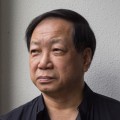As an international city, Hong Kong has contributed much to China’s development since the nation’s opening up. And it will continue to play an important role, through the “One Belt, One Road” initiative. The local government should seek to boost Hong Kong’s importance with a “sister city” or twinning strategy, and by opening more economic and trade offices around the world.
The “sister city” programme originated in Europe after the second world war. According to Sister Cities International, it is a long-term cooperative relationship between two cities in different countries in the fields of culture, education, trade and technology, as well as specific industries and projects, resulting in considerable economic benefits. Nowadays, this communication and cooperation platform can generate billions of dollars annually in direct and indirect economic benefits.
Major cities like London, Chicago, Tokyo and Beijing have twins. The Hong Kong government should develop longer-term and closer cooperation with selected cities to promote economic and trade activities in a globalised world, develop new industries, and so demonstrate its soft power.
In order to develop innovative technology, and cultural and creative industries, cities to consider include Munich and Berlin in Germany, as well as Daejeon and Busan in Korea.
To capture opportunities from the belt and road initiative, sister-city partnerships with Surabaya in Indonesia and Dubai in the United Arab Emirates should be considered. Surabaya, Indonesia’s second-largest city, is its largest economic driver in terms of growth potential, with an economic structure similar to that of Hong Kong. Dubai, meanwhile, has successfully attracted foreign investment with its diversified economic structure. It is also the largest export market for Hong Kong in the Middle East.
With more than 60 nations along its route, the belt and road will have a major global impact in the coming decades. Hong Kong’s network of Economic Trade Offices covers just 22 nations along the route, with zero coverage in South and Central Asia, West Asia, the Middle East and North Africa.
New trade offices and liaison units should be set up at selected locations along the belt and road, based on two major criteria: the level of economic development and bilateral trade volume.
So, prime targets should include New Delhi, Moscow, Astana, Dubai and Warsaw. Liaison units need to be set up in Thailand and Vietnam to strengthen relations with Asean, while trade offices in Xinjiang and Fujian would help coordinate work with other areas on the mainland.
Law Cheung-kwok is a senior research fellow at Hong Kong Vision Project, where Ip Ka-chai is a research assistant.


